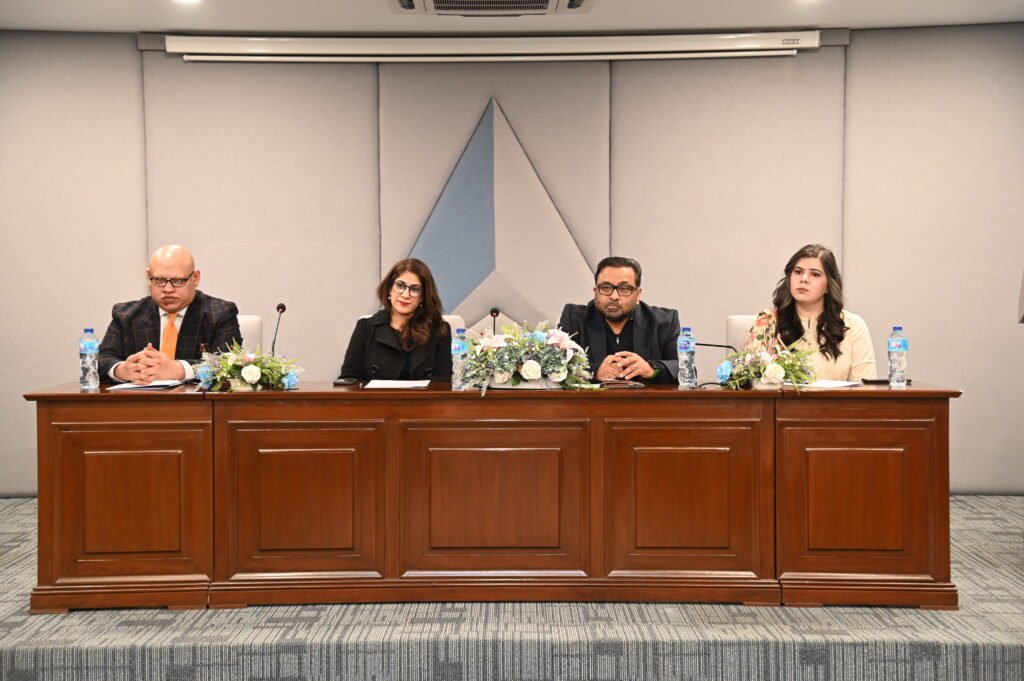
Seminar
Mastering Narratives: Navigating Disinformation and Reshaping Perceptions for Pakistan‘s Future
In today’s interconnected world, digital networks are forging ties among nations in unprecedented ways, ushering in an era where communication transcends traditional boundaries. The reach of media through these digital networks extends far beyond geographical confines, creating ripple effects across territories.
Within this transformative landscape, narratives, or stories, have emerged as powerful architects shaping how a nation is perceived. The potency of their influence becomes even more pronounced as narratives traverse the digital pathways of social media, online platforms as well as traditional news outlets, resonating with individuals across the globe.
Narratives, whether intentional or organic, contribute to the shaping of a collective global consciousness, influencing how nations are perceived and how their stories are told in the complex tapestry of international relations.
However, this interconnected world also becomes a battlefield, where histories, perceptions, and ideologies clash, often fracturing societies and silencing voices. Amidst this complicated web, the phenomenon of 5th Generation Warfare (5GW) unfolds, introducing a new generation of conflict with far-reaching implications across national security, foreign policy, and domestic affairs.
At the forefront of 5GW lies the strategic deployment of disinformation. This subtle yet potent weapon operates within the invisible realms of the digital landscape, leveraging the vast possibilities offered by evolving technologies. Disinformation campaigns, often sophisticated and targeted, exploit not only the vulnerabilities of information dissemination but also deepen existing social divisions.
Pakistan finds itself at the epicentre in this relentless 5GW landscape characterised by disinformation, weaponisation of narratives and perception building. The EU DisinfoLab’s revelations about India’s 15-year operation to discredit Pakistan through deceptive media practices serve as a clarion call, demanding proactive measures to counter further assaults as the 5GW gains momentum.
Recognising the critical importance of navigating this complex landscape, the Centre for Aerospace & Security Studies (CASS), Lahore, organised a seminar on 25 January 2024 titled ‘Mastering Narratives: Navigating Disinformation and Reshaping Perceptions for Pakistan‘s Future‘. The seminar provided a platform for insightful discussions and presentations by eminent speakers, shedding light on the evolving dynamics of disinformation, particularly within the context of 5GW.
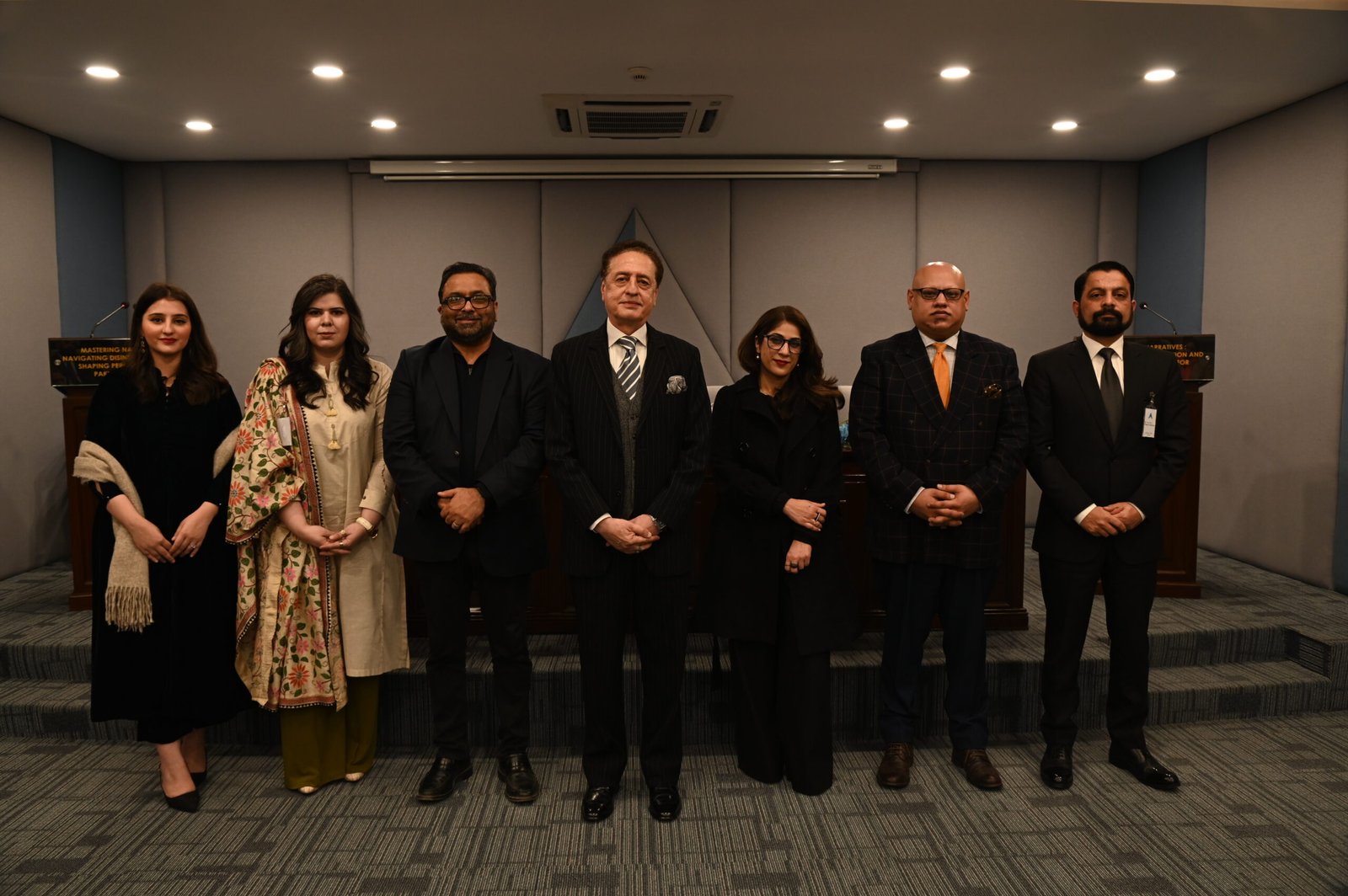
Key Takeaways
Disinformation is increasingly weaponised to deepen societal divisions, erode trust in democratic institutions, and manipulate public perception through tactics like astroturfing and cognitive bias exploitation. In Pakistan’s context, such strategies are key tools of Fifth Generation Warfare, used by adversaries to destabilise national cohesion by aggravating societal fault lines. Addressing these challenges requires balancing national security with civil liberties, enhancing youth education in media literacy, and fostering informed public discourse to counter foreign narratives and adapt to evolving digital realities like the metaverse.
Policy Considerations
To counter disinformation effectively, Pakistan must prioritise strategic communication by avoiding reactionary responses, binary narratives, and culturally insensitive messaging that could unintentionally inflame tensions. Strengthening public-private collaboration, improving content monitoring mechanisms, and investing in information literacy are essential steps toward enhancing national information resilience. Additionally, empowering the youth, refining digital data accuracy, and promoting a unifying national narrative will help Pakistan safeguard its social fabric and amplify its presence in the global digital landscape.

Post Event Report
A comprehensive overview featuring key insights, expert discussions, and strategic takeaways from the event.
Explore speaker highlights, recommendations, media coverage, and event photographs.
Guest Speakers
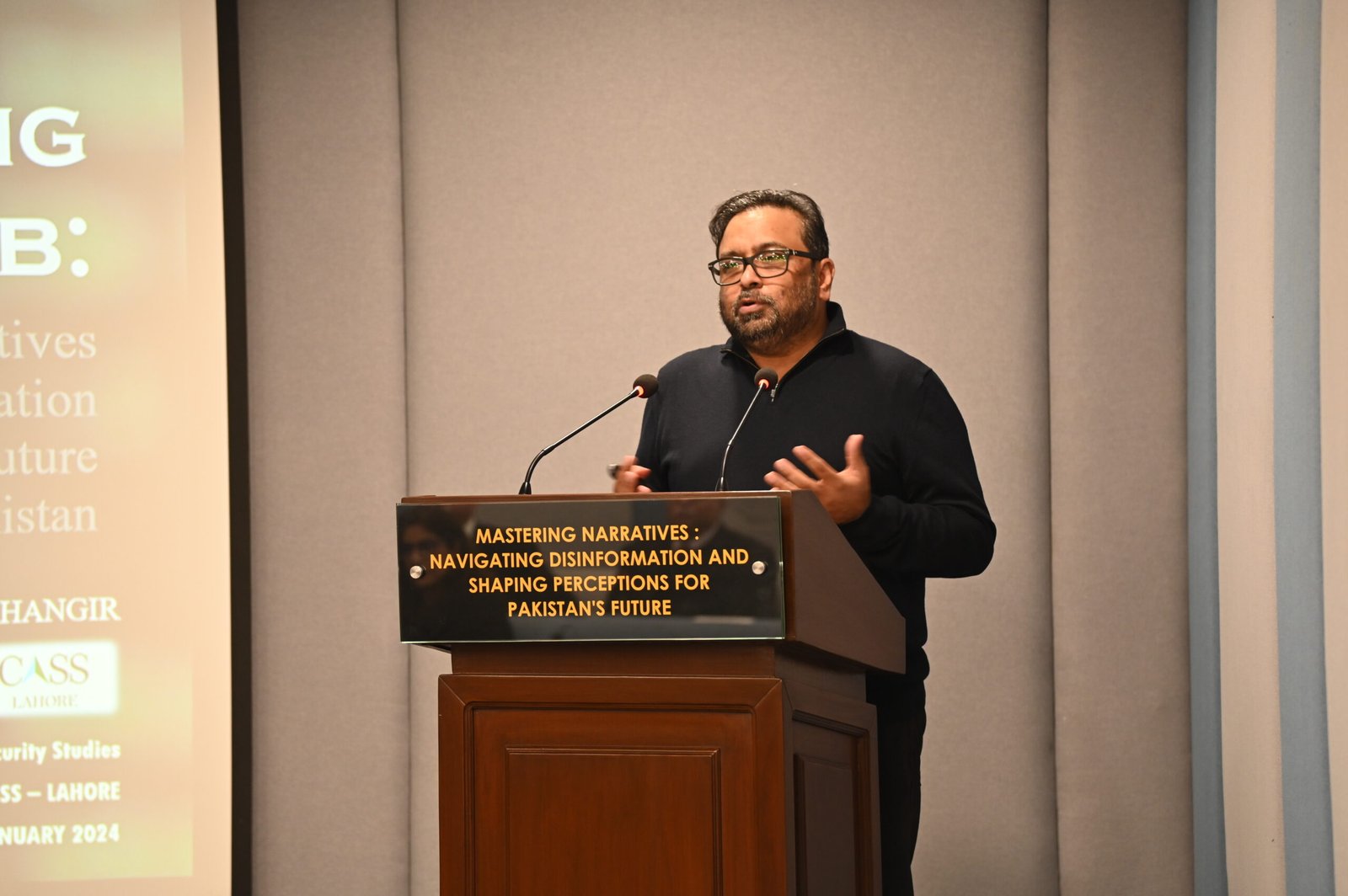
Mr Amir Jahangir
CEO, Mishal Private Limited
Dr Zeeshan Zaighum
Assistant Professor, School of Media & Mass Communication

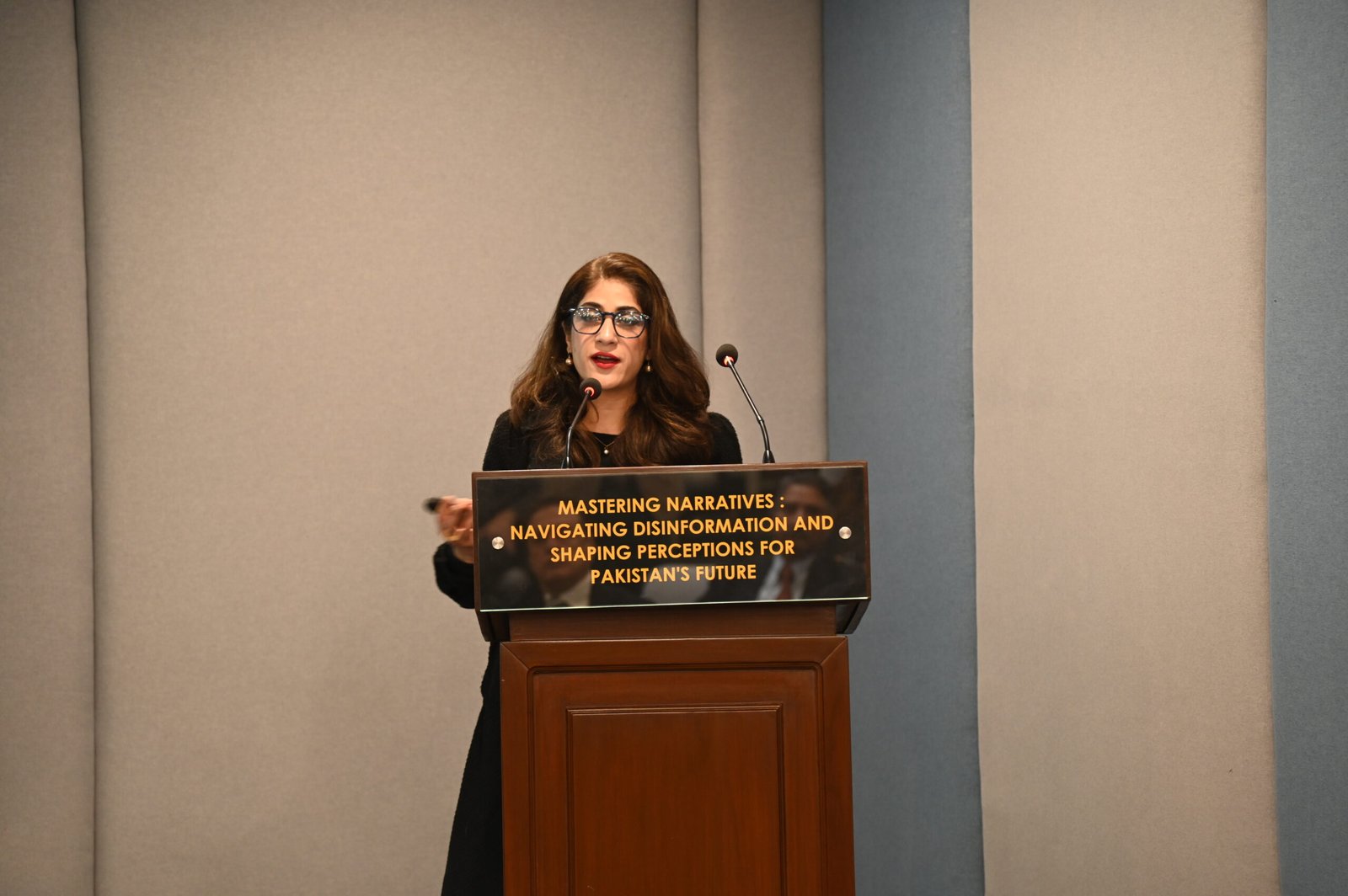
Ms. Amber Shamsi
Director, Centre for Excellence in Journalism (CEJ)
CASS Speakers
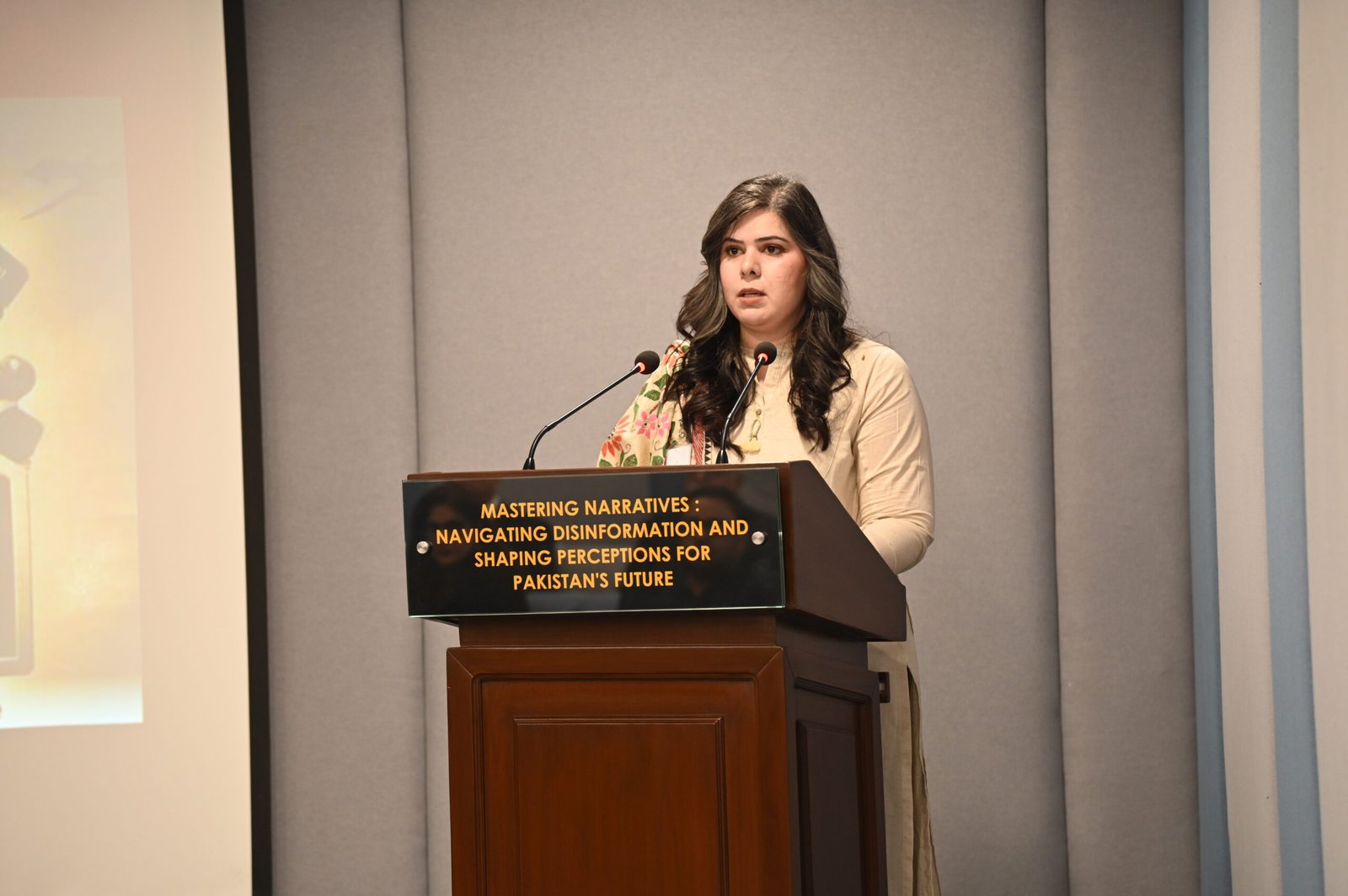
Ms Nidaa Shahid
Senior Researcher, CASS Lahore
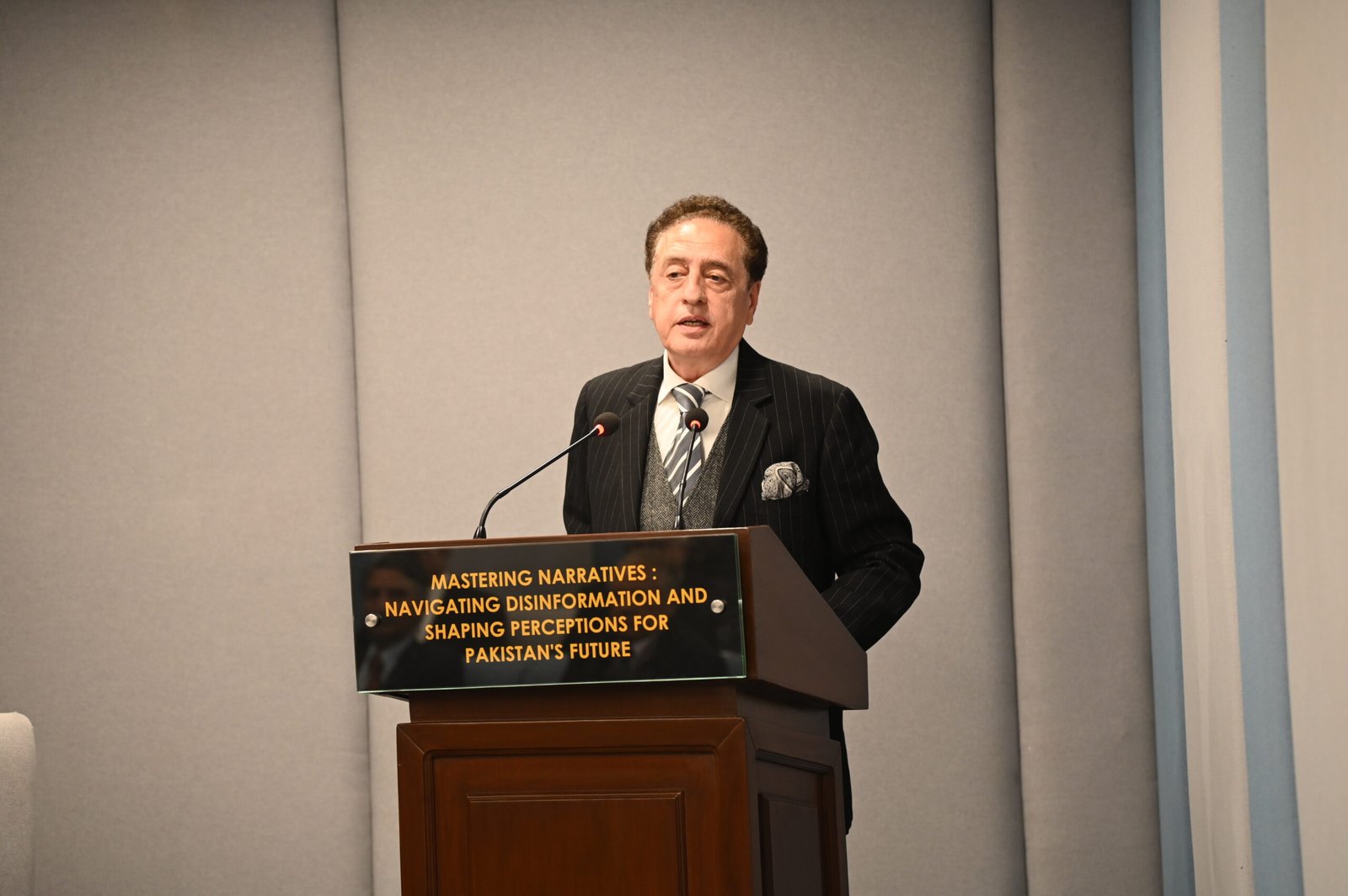
Air Marshal Asim Suleiman (Retd)
President, CASS Lahore
Master of the Ceremony
Researcher, CASS Lahore
Faiza Abid
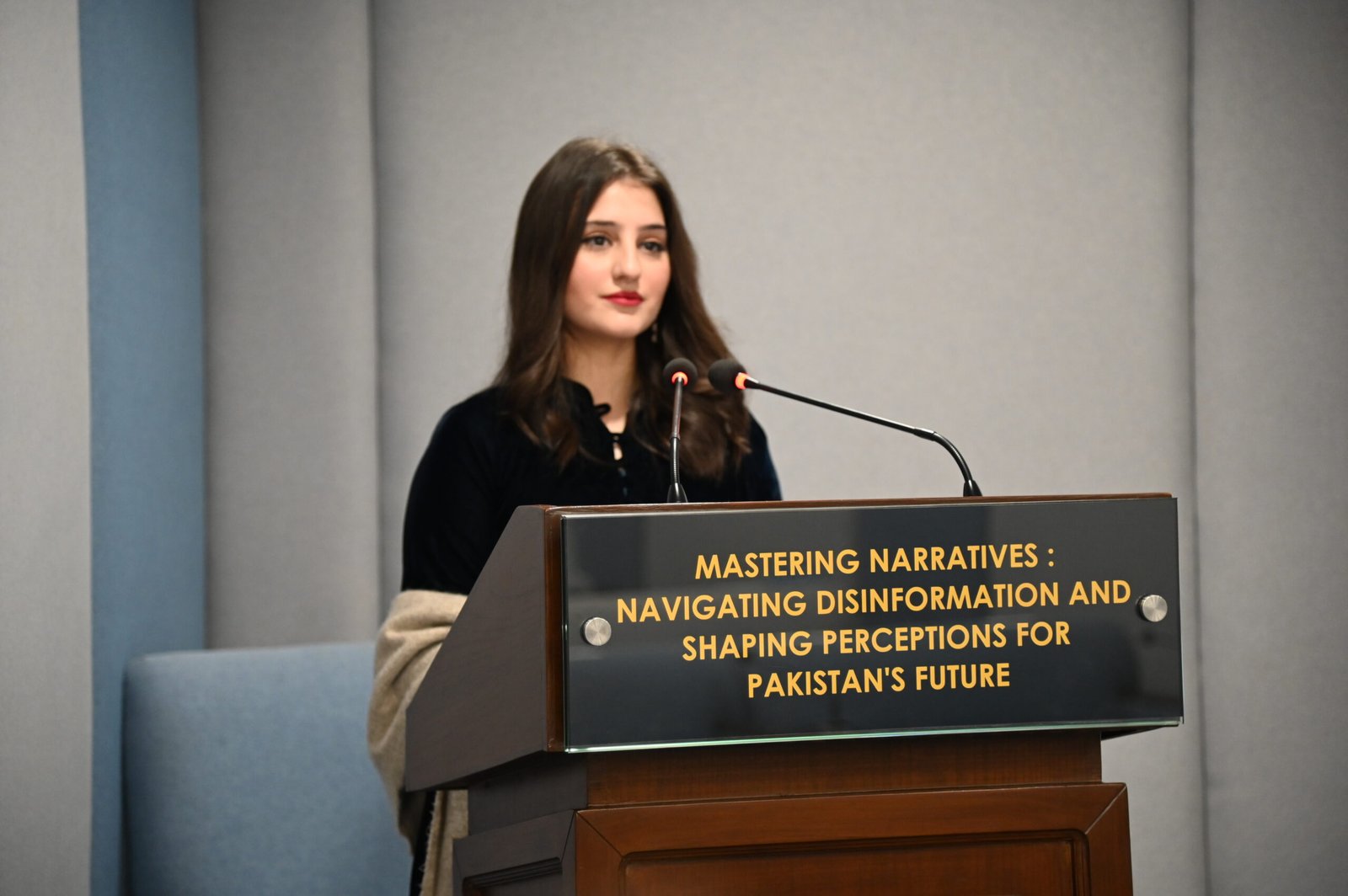
CASS LAhore

The Centre for Aerospace & Security Studies (CASS) was established in July 2021 to inform policymakers and the public about issues related to aerospace and security from an independent, non-partisan and future-centric analytical lens.


